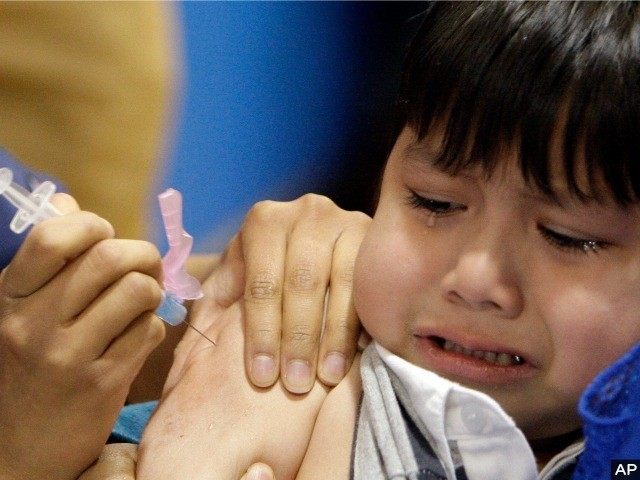California lawmakers championing mandatory vaccines for children to protect the general population have weathered serious criticism from anti-vaccinations advocates, with at least one lawmaker receiving death threats. Sen. Richard Pan, who introduced SB 277, the bill that would repeal the personal belief exemption to school vaccine mandates, admitted that his office has been inundated with threatening phone calls, e-mails and Facebook comments; some calling for him to be “eradicated” or hung until dead.
Pan told the Sacramento Bee, “They’re basically trying to silence us. It’s disturbing.”
Pan’s office sent the threats to the Senate Sergeant-at-Arms office, which then referred questiuons to Senate President Pro Tem Kevin de León’s office. De Leon’s spokeswoman Claire Conlon said, “It’s our policy not to discuss Capitol security details.”
Pan has been threatened before; in March, guards were posted at a community forum after opponents of SB 277 mentioned throwing objects at him.
Pan’s situation is not entirely unique. Democratic senators Holly Mitchell of Los Angeles and Bill Monning of Carmel both allowed that they have received inappropriate phone calls.
Pan responded to the threats by mentioning the “vitriol” of anti-vaccine advocates, including Robert F. Kennedy, Jr., who apologized after likening mandatory vaccines to the Holocaust. Pan said, “What does that mean for the followers when they make comments like that? That stimulates people to want to make threats.”
The fuss by anti-vaccine opponents over SB 277 flies in the face of a Los Angeles Times data analysis that revealed that in 2014, for the first time in 12 years, less Californians claimed their beliefs disallowed immunizing their children.
Vaccine opponents ignore the concept of “herd immunity.” Herd immunity, sometimes called “community immunity,” has been defined as “protecting a whole community from disease by immunizing a critical mass of its populace.” As Emily Willingham and Laura Helft wrote for NOVA, vaccinated individuals protect “members of the community who cannot be vaccinated, preventing the chain of disease from reaching them and limiting potential outbreaks. Every vaccinated person adds to the effectiveness of this community-level protection.”
Paul Fine, an MD with the Department of Infectious Disease Epidemiology at the London School of Hygiene and Tropical Medicine, joined Ken Eames and David L. Heymann to write in April 2011, “In most circumstances, the sensible public health practice is to aim for 100 percent coverage, with all the doses recommended, recognizing that 100 percent is never achievable, hoping to reach whatever is the ‘real’ herd immunity threshold in the population concerned.”

COMMENTS
Please let us know if you're having issues with commenting.